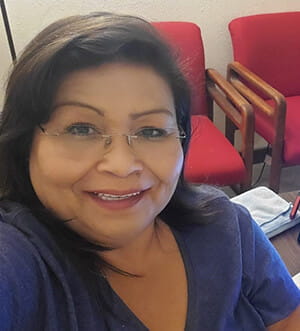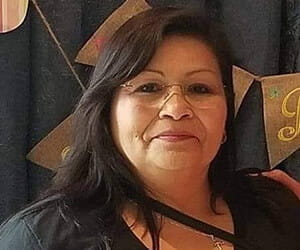
In addition to her work, O’Neal volunteers for Truth Be Told, an Austin-based nonprofit that provides “transformational tools of community building, communication skills, creativity and self-care for women behind and beyond prison walls.” This is where so much of her social justice passion comes from. O’Neal met the organization while she was behind bars, and, since 2007, she has mentored women to break the cycle of incarceration. She became involved with their advocacy initiatives when the organization received a call for system impacted women to become active in legislature, which is being called the graduate to advocate program.
In the early 2000s, O’Neal struggled with addiction and had some run-ins with law enforcement. She felt discouraged by a lack of support and stopped reporting for probation, which escalated her situation. She ended up spending time behind bars for her addiction issues.
“This was a pivotal moment for me,” says O’Neal, a Walden University MS in Clinical Mental Health Counseling student. “It gave me an opportunity to think about what I was doing. I met people who were struggling with their own addictions, and I learned I needed to be part of the solution, not part of the problem. That was the moment I decided to do better for myself.”
O’Neal was determined to get her associate’s and bachelor’s degrees, specializing in addiction. In hopes of working with young people, she became a Licensed Chemical Dependency Counselor (LCDC) in Texas.
“If the only thing I could offer an employer was a GED and criminal record, I was not going to be able to get very far,” says O’Neal. “I wanted badly to become a counselor because I knew how impactful they could be for people like me.”
More than a decade after overcoming her challenges, O’Neal is helping others to do the same in her role as lead counselor for the Azleway Substance Abuse Program. The organization provides adolescents ages 13 to 17 with primary chemical dependency counseling and supports clients with dual diagnoses of mental health issues and concurrent co-health issues. The young people in the program are mandated to receive treatment at the 60- to 90-day facility as part of their probation. In 2017, Azleway’s substance abuse program treated 72 adolescents, with 81 percent successfully completing treatment. Of those individuals, about 89 percent were still abstinent at the 30-day mark.
O’Neal’s work with adolescents has been eye-opening for her. Many of the children come from low socioeconomic backgrounds and troubled homes. O’Neal believes they can benefit from extra encouragement as they make their way through rehabilitation.
“Most of the time, we know this is their first exposure to treatment,” says O’Neal. “Many of the adolescents arrive angry and initially see the treatment as punishment. We understand the extraordinary challenges they face after they leave the program, especially because they often head back into the same environments they came from, where even their own families might not be invested in their recovery.”
For many of them, she understands this will not be their last experience with treatment. As part of their therapy, O’Neal focuses not only on their addiction but also on coping skills, helping them to manage emotions, and teaching them to communicate in a healthy manner.
“It can be extremely difficult for them to understand they have issues with addiction this early on in their lives,” says O’Neal. “They start to realize they will never be able to have a drink with their family or at special events, which is sometimes beyond their comprehension.”

“Education was never important in my family, but, once I started higher education, my thirst for learning continued to increase over the years,” says O’Neal. “Online learning gave me the opportunity to invest in myself so I could strive to become the best that I can be.”
As O’Neal approaches graduation, she thinks about how she can apply her classroom learnings to her work and use it to evolve services for adolescents with addiction and related issues. In addition to her work at Azleway, she wants to offer bilingual counseling services for young people who are exiting the Texas juvenile system on parole. She’s also applied to become an Alcohol and Drug Education Instructor. O’Neal was selected to be a 2020 NBCC Minority Fellow for the work she does, receiving a scholarship and extra training.
“I’m incredibly passionate about working with youth to meet their counseling and mental health needs,” says O’Neal. “If we don’t help our children to develop the skills they need to become healthy and have a better life, we lose the impact that they can make in the future.”



